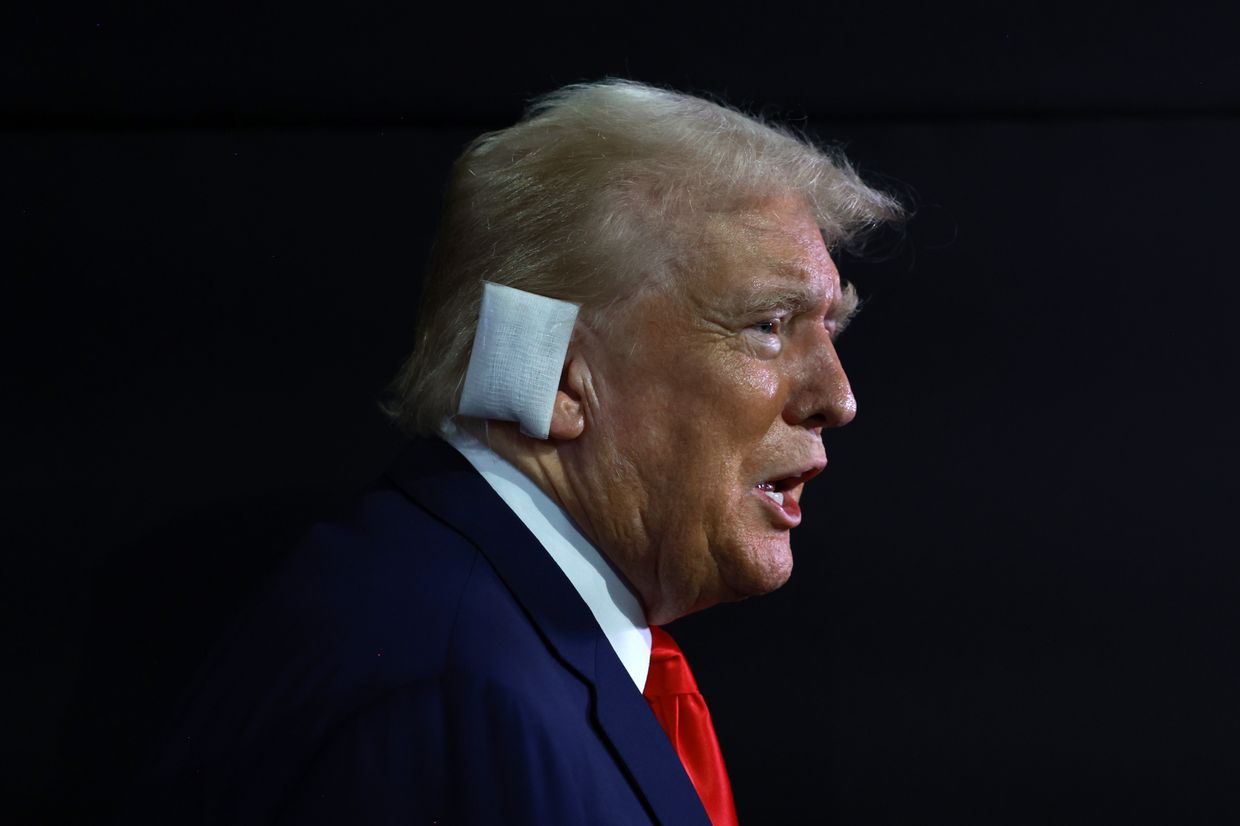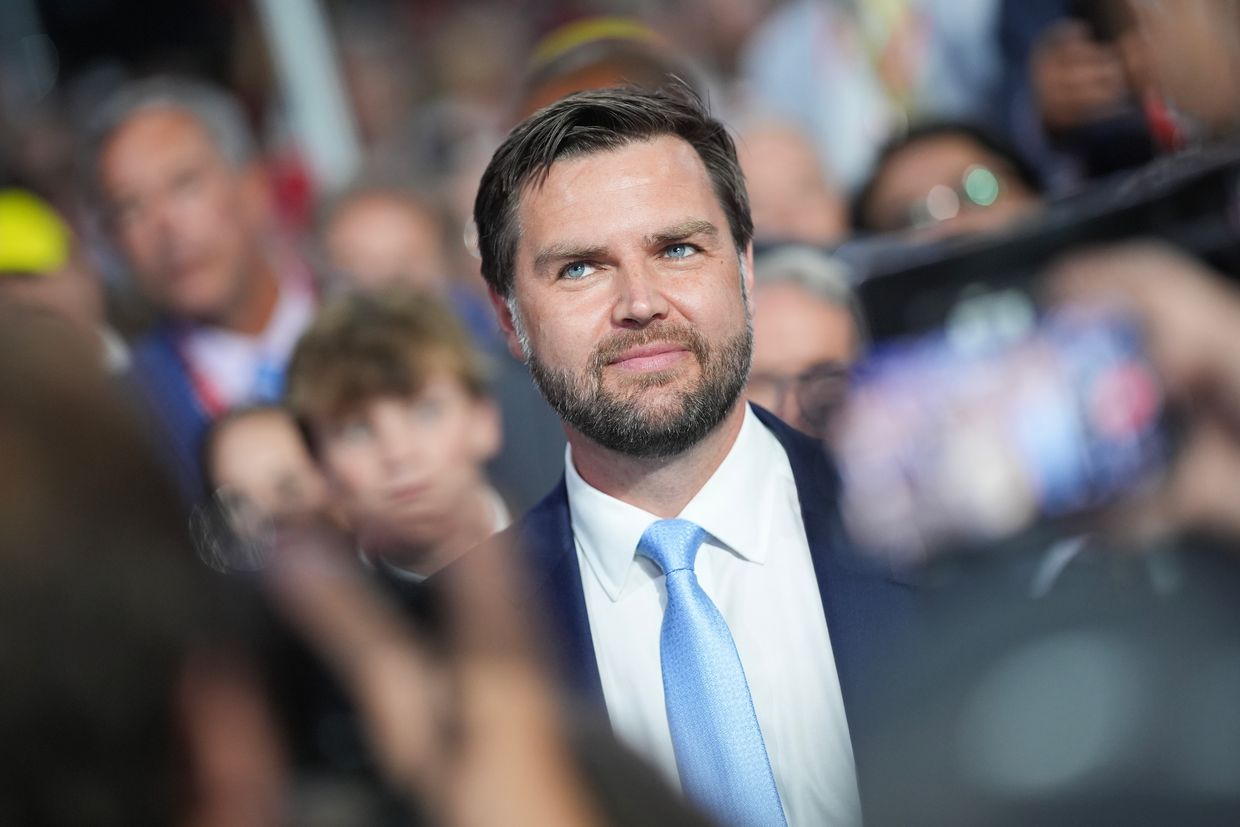Zelensky, Trump hold call, discuss future of US support

President Volodymyr Zelensky and Donald Trump, former U.S. president and Republican presidential nominee, held a phone call on July 19, five years after a fateful 2019 phone call between the two led to Trump’s first impeachment.
President Zelensky announced on Twitter that the two discussed the "vital importance of bipartisan and bicameral" U.S. support for Ukraine.
The Ukrainian leader also noted that the leaders agreed to a future "personal" meeting to discuss peace with Russia.
"Ukraine will always be grateful to the United States for its help in strengthening our ability to resist Russian terror," Zelensky said. "Russian attacks on our cities and villages continue every day. We agreed with President Trump to discuss at a personal meeting what steps can make peace fair and truly lasting."
Zelensky also reportedly congratulated Trump on the Republican nomination and condemned the assassination attempt against the former President earlier this week.
Politico later reported that Trump called it a "very good call" and will work to negotiate a peace deal. An anonymous source close to Zelensky also told Politico that the conversation went "exceedingly well."
In the backdrop of this most recent phone call is the July 2019 phone exchange during which Trump asked Zelensky to investigate his political rivals one week after withholding U.S. military aid to Kyiv.
According to transcripts released of the call, Zelensky told Trump that Ukraine wanted to buy more U.S.-made Javelins to fight Russia’s war in the east that had been ongoing since 2014.
In response, Trump said to Zelensky: "I would like you to do us a favor, though.”
Trump then told Zelensky he wanted Ukraine to investigate U.S. President Joe Biden’s son, Hunter Biden, and work with Trump’s personal lawyer, Rudy Giuliani, to investigate Ukraine’s alleged involvement in the 2016 presidential election, specifically an unfounded claim that Ukraine had broken into a Democratic server.
Hunter Biden took a paid seat on the board of Burisma, a controversial Ukrainian gas company, in April 2014, just a month after Russia illegally annexed Crimea. He later resigned from Burisma in April 2019 during his father’s 2020 campaign for president.
In an investigation, Russia was found to have been behind the hack of the Democratic National Committee (DNC) back in 2016. Trump’s reference to the server in Ukraine was part of a conspiracy, pushed largely by Giuliani, that it was Ukraine, not Russia, that had hacked the DNC.
While Trump called it the "perfect call" at the time, White House officials also on the call said they felt the president was asking Zelensky to dig up dirt on a political rival.
Trump’s request also seemed to be a way to pressure the Zelensky administration at a time when it was waiting for further U.S. aid. A week prior, Trump had ordered his chief of staff, Mick Mulvaney, to suspend $400 million in U.S. military aid to Ukraine and had withheld an invitation to the White House.
The memory of the phone call and the stain it left on the leaders’ relationship begs the question of what U.S.-Ukraine relations will look like if Trump secures a second term in office. U.S. aid is critical to Ukraine’s fight against Russia’s almost three-year war that aims to destroy Ukraine as an independent nation.
Zelensky told the BBC on July 18 that if re-elected, working with Trump would be "hard work, but we (Ukrainians) are hard workers."
He also said he is ready to work with whoever is elected U.S. president to defeat Russia. "Maybe he really doesn’t care, but we have to work with the United States," he added.
Trump accepted the Republican Party's nomination on July 18. His chances to win the presidency are expected to increase following an assassination attempt, and calls for Biden to step out of the race are growing louder amid concerns over his health.
The former president has long criticized U.S. aid to Ukraine and, as the presumptive Republican nominee in the 2024 U.S. elections, held sway over the party and contributed to the months-long deadlock in Congress over U.S. aid to Ukraine.
Emily Channell-Justice, a program director at Harvard University’s Ukrainian Research Institute, believes that if elected in November, Trump's first impeachment following the phone call with Zelensky will likely impact how a future Trump administration deals with Ukraine.
“Being at the center of a giant scandal in that administration, I can’t imagine that Trump looks fondly upon President Zelensky,” Channell-Justice told the Kyiv Independent.
One of Trump’s National Security Council staffers who was listening to the infamous 2019 call, Alexander Vindman, told the Kyiv Independent that Trump “says what he means” when asked how seriously Ukrainians should take the potential return of a Trump White House and what it could mean for Ukraine.
“He’s not concealing himself at all.”














